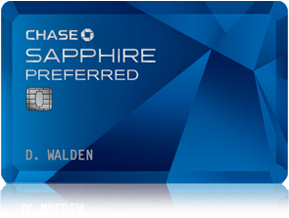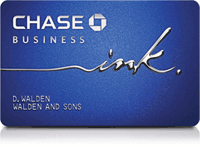
I’ve already laid out my Frequent Flier Kung Fu for Novices, so I thought I would follow up with a bit more about credit card benefits. See, you can reap amazing rewards just for being members of various hotel and airline programs, and credit cards can really open those doors quickly and easily. My advice? Get a Chase Sapphire card for points and the card from your favorite hotel chain for benefits.
Note: This article is almost entirely USA-centric. I apologize to my international readers, but I bet there are similar offers where you live!
Credit Cards: Don’t Be A Sucker!
Credit cards are like Las Vegas casinos: They offer lucrative-sounding benefits in hopes that you (the consumer) will be a sucker. If you’re very careful and don’t get in over your head, you can make out like a bandit. But most people end up handing over a truckload of money without really realizing it.
The first rule of credit cards is simple: Never carry a balance and never pay interest. Interest on revolving debt is the primary source of revenue for banks, and credit card rates are shockingly high. This is much easier said than done, however, since most people simply can’t afford to pay off all their personal debts. So I’m going to ease off here a bit and change this rule.
Never carry a balance for business expenses and never subsidize your job by paying interest. There, isn’t that better? If you’re a business traveler, you presumably make money when you travel. That money should go first to paying off your expenses and into your pocket only after that. There are two easy ways to accomplish this:
- Set up automatic payment of your full statement balance every month and sweat and fuss to make sure the money is there to cover it.
- Get a charge card instead of a credit card so you have to pay it off every month and sweat and fuss to make sure the money is there to cover it.
Either way, you’re paying your balance off every month, incurring no interest, and reaping the rewards. And you’re also sweating and fussing to make sure the money is there to cover it! This is simply the reality of business travel expenses and this rule must not be violated. Do not pay credit card interest, thus giving your employer a free loan. Expense reports are a hassle, and some companies take a long time to pay, but you can’t put yourself in a place of compounding interest just because your employer can’t pay their debts.
Get A Credit Card For Business Travel
Ok, so you’re not a sucker and you promise to pay your bill every month? Then back to our article…
If you’re traveling a lot for business, you should get a credit card to use just for business expenses. Focus your spending there and it’s easier to keep track of business expenses and easier to keep out of the trap of revolving debt and interest payments, even if you haven’t paid off your personal debts.
Some companies will offer a “Corporate AmEx”. Ignore it. Use your own card instead. You get no benefit from those cards, yet you’re still on the hook to pay the bill. In fact, many companies have arranged with American Express to collect your benefits themselves! But, in my experience, most won’t know or care if you use your own card instead.
Most credit cards come in “business” and “personal” flavors. Don’t worry – the IRS doesn’t care which you use, and neither should you. If you want to get the “business card” and don’t have an LLC and EIN, just use your SSN when you sign up. But know that most “personal card” offers are more generous! I’d say get the personal card for now.
There are two main things you can get from a credit card for business travel:
- Points and miles to be used for your own benefit in the future. You can get free hotel stays, airfare, and even merchandise.
- Elite benefits that make business travel less awful and personal travel more fun. These can save you money on checked bags, Internet, and breakfast, and can get you a nicer experience overall.
Note that neither of these really makes up for the hassle of frequent business travel. Despite what the bean counters might tell you, you really do lose money on travel even after your expense report is paid and you collect your miles and comps. Frequent travel takes a toll on your life, and it’s especially hard on your family. But it’s a trade-off, since travel often means a better job and more money overall.
You’d probably like these other articles by me:
Earn Points and Miles With A Credit Card
Let’s concentrate on the first category first, earning points.
Don’t be fooled: Points and miles aren’t really that valuable. You need a lot of points for a free hotel room or camera, and you need a lot of miles for a free flight. In fact, many credit card ninjas focus on signup bonuses as their points-earning engine, mostly ignoring “spend” as a source of points.
But you can get enough points to be worth something if you’re careful and focus your spending. Here’s how.
- Get the Chase Sapphire Preferred card. Sapphire has been called “the king of credit cards” and for good reason: It has great signup bonuses, great all-around earning, and you can transfer Chase Ultimate Rewards points to just about any airline or hotel program. This is my go-to credit card for most expenses.
- After you’ve got your Sapphire card, consider getting a co-branded card for your preferred airline and hotel. This will mostly be for the elite benefits (see below), but most of these have points multipliers when used for expenses with that chain or airline. Use the Sapphire for regular expenses and the hotel or airline card for those special expenses.
- If you really want to be clever, get both the Sapphire card and a Chase Ink card. The Ink earns more points on most business spending, but they can’t easily be transferred to other programs so they’re less useful. But if you have both cards, you can combine your Ink points into your Sapphire account and transfer from there to anywhere you want. Awesome!
I’m not big on signing up for cards just for the sign-up bonus, but many people do this with amazing results. That said, it pays to locate the best bonus available when you do choose to sign up for a card, since there are often multiple offers out there at the same time. Just hit Gary Leff’s blog, View From The Wing for the latest offers.

Special Cards For Special Benefits
Once you’ve got a Sapphire card for regular spending, you can get one or more specialty cards for elite benefits and multiplying points. Again, don’t focus your spending on these since their points are limited to one particular program: The Hilton card only earns HHonors points, the United card only earns Mileage Plus miles, etc. But they’re still useful.
- Get a branded hotel card to earn elite status and get freebies. Pick your chain and focus your stays there: Hilton (Hilton/Doubletree/Embassy/Hampton), Starwood (Sheraton/Westin/W), and Marriott (Ritz/Marriott/Courtyard) are most popular with business travelers, though the elite benefits at the Hyatt are way better. The Citi Hilton Reserve, SPG AmEx, and Chase Marriott cards are the best options, respectively.
- Get an airline card for miles, though benefits are few. One worth noting is primary rental car insurance, a benefit of the Chase United MileagePlus Explorer card. This is a huge but usually overlooked benefit, and I use this card for all car rentals because of it.
- Consider an American Express Platinum card, which gives automatic Starwood Gold status and gets you into lots of airport lounges. But I don’t love American Express’ Membership Rewards points like the Chase program.
Of all these cards, the Citi Hilton Reserve or HHonors AmEx are best since they give automatic status, Gold for the Citi and Silver or Gold with $20k in spending for the AmEx. The Chase Marriott includes credit towards elite status, but it’s actually easier to get Marriott Gold status by being a United Gold flier. The SPG AmEx gives Starwood Gold status after $30k in spending, but that’s kind of hard for most people to achieve.

Stephen’s Stance
New business travelers first should sign up for a preferred hotel and airline program and focus their travel dollars there. Then, they should get a Chase Sapphire card or American Express Platinum card to earn points on travel and transfer those points to the hotel or airline program for redemption. Finally, they should consider getting the co-branded credit card for their hotel chain and airline of choice.
Note: If you sign up for a Chase card using this link, I’ll get some points. But that’s not why I created this post. I’m just trying to pass on the credit card mojo I’ve learned in the last few years. Also note that I am not a qualified financial or tax advisor and you should seek professional advice on all matters of taxation!
It’s not quite true that “you gain no benefit from a Corporate AMEX”. The one area that you need to fully understand is how your card, and your company, operate for rental car coverage. For a long time, Diners Club was -primary- for rental car insurance. That meant if there was an accident, they’d pay first, and then work with your auto insurance. Most other cards are not primary, meaning it’s up to you and your car insurance first. Your company may have a policy requiring you to use a specific credit card based on agreements with the card provider and their preferred rental car company. However, those agreements are highly questionable if the card your company tells you to use is not a company card, but a personal liabiilty card. (i.e. the company says, “You have to use our credit card, but if there’s a problem, it’s your problem.)
The point about primary rental car insurance is huge. Thanks David! Indeed, this is exactly why I signed up for the United MileagePlus Explorer card and use that. Most people don’t understand just how important PRIMARY rental car insurance is, and most don’t realize that their card probably doesn’t have it!
As for questionable corporate rules on which card to use, I agree. I’ve worked for companies that “required” me to use the green personal AmEx card they forced me to get. But I pretty much ignored that and used my own cards instead and they never really cared. Your company may vary…
I’ve been a longtime Chase Sapphire Preferred user, and earn enough points with the card that the annual fee isn’t even worth thinking about; there’s a similar fee on the Citi Hilton Reserve, but as long as you’re getting sufficient value out of the membership, the out-of-pocket fee gets offset as well.
You have to be really careful when using a credit card, though. For one, identity theft can be really draining. In addition, if you rack up too much cc debt, that will be the end of you. Be careful.
Check out our Book a Cheap Car Rental in Adelaide